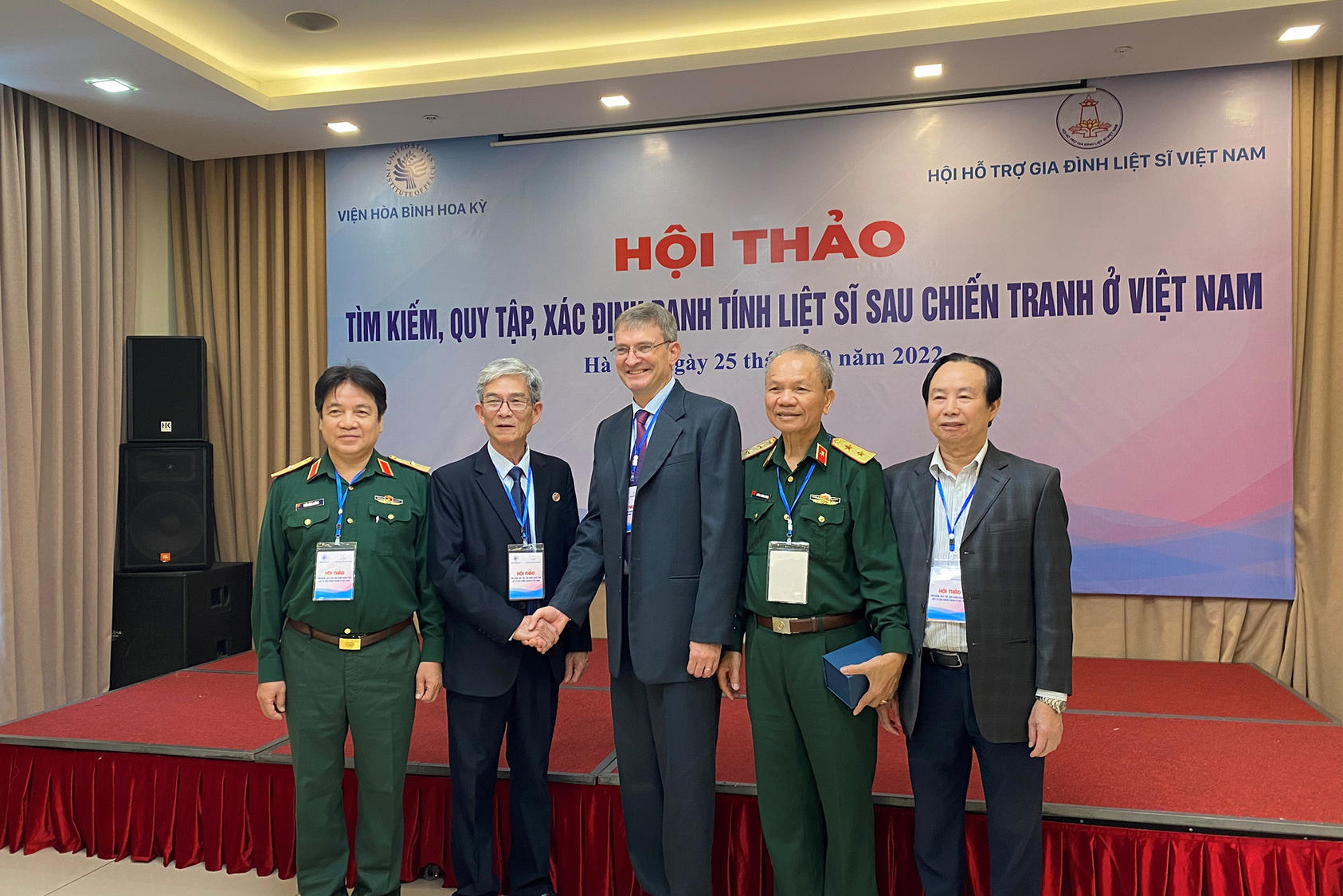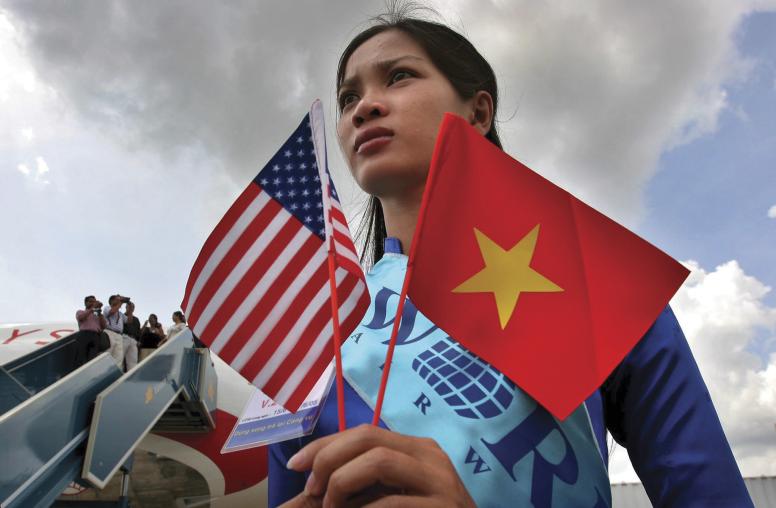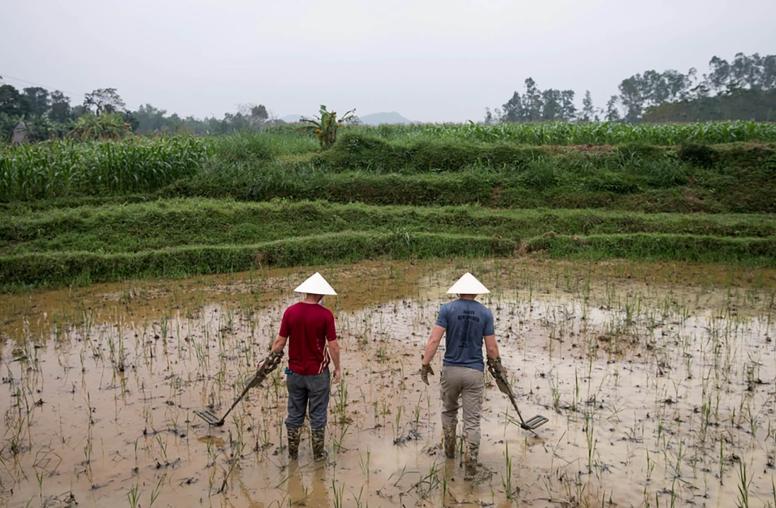As the 50th anniversary of the end of the Vietnam War approaches in 2025, Vietnamese families continue to search for the fallen. Finding these war remains not only helps provide closure, but is critical to furthering postwar reconciliation, addressing the war’s legacies and advancing the story of U.S.-Vietnam relations as an example of the practicality and possibility of peace after war. But, as the years pass, finding these remains becomes increasingly challenging. A critical component of U.S.-Vietnam postwar reconciliation has been bilateral cooperation to search for American MIAs since the mid-1980s. Since last year, the United States has helped Vietnam’s government find Vietnamese war dead and is helping speed up the process as the passage of time adds more challenges.

‘Time Is not Our Friend’
The scope of Vietnam’s wartime losses is truly colossal. According to Vietnamese government sources, the remains of 180,000 fallen soldiers from the People’s Army of (North) Vietnam and the People’s Liberation Armed Forces (“Viet Cong”) are not yet recovered. And over 300,000 unidentified remains are buried in cemeteries across the country. In addition, an unknown number of civilians and Republic of (South) Vietnam soldiers are also unrecovered. Vietnamese families’ search for closure is hampered by poor record keeping, degradation of evidence in tropical soil and the dwindling number of witnesses with memories of the war.
Vietnam’s ambassador to the U.S., Nguyen Quoc Dzung, told participants at USIP’s recent Dialogue on War Legacies and Peace: “For reconciliation between Vietnamese and Americans, time is our friend. But for finding the missing, time is not our friend.”
The U.S.-Vietnam bilateral cooperation to search for American MIAs has resulted in over 1,000 Americans repatriated and identified. On the request of the Vietnamese government, the U.S. government has turned over information about Vietnamese remains, as have individual U.S. veterans with knowledge of mass grave sites. Working together with the Vietnam-USA Society, Vietnam Veterans of America has provided files relating to 12,000 Vietnamese fallen soldiers and helped to search for and excavate the remains of about 1,300 people.
Most recently, the U.S. Department of Defense launched the Vietnam Wartime Accounting Initiative to assist in locating and identifying Vietnamese war dead, with involvement of USIP, USAID, Harvard University, and the International Commission on Missing Persons (ICMP). USIP’s roles in this initiative encompass policy dialogue, public education and communications, including online and in-person events, and a set of video interviews with Vietnamese and American families.
On October 25, 2022, USIP co-organized a workshop in Hanoi with the Vietnam Martyrs’ Families Support Association (VMFSA), one of the key stakeholders in the search for and identification of wartime remains. With about 10,000 members nationwide, the association plays a critical role in mobilizing social resources and promoting the use of DNA testing. According to papers presented by 11 VMFSA members and provincial coordinators, their main challenges are access to information, a lack of high technology DNA testing capacity and centralized data, and insufficient funding support.
To deal with these difficulties, VMFSA members asked USIP to connect with U.S. partners and veterans’ groups and help stimulate communication among the American and Vietnamese publics via dialogues and workshops. VMFSA is prepared to work with Vietnamese government agencies to develop a DNA database and use new technologies to analyze DNA of low-quality bone remains. In July 2022, Prime Minister Pham Minh Chinh requested the ministries of Labor, Defense, and Information to collaborate with the Vietnam Academy of Science and Technology (VAST) to establish a national database for DNA assessment. Vietnam’s current DNA testing technology has identified 1,389 fallen soldiers over the past 10 years.

Addressing Capacity Challenges
The U.S.-supported Wartime Accounting Initiative is stepping in to speed up forensic technology transfer, develop data management and analysis capacity, and train Vietnamese forensic workers. On October 31, ICMP signed an implementation agreement with the Center for DNA Identification of VAST, one of three labs assigned by the Vietnamese government to analyze DNA to identify fallen soldiers’ remains. ICMP will introduce SNP (single nucleotide polymorphism) analysis, which is better suited for degraded samples and produces unique matches, compared to previously used mitochondrial DNA markers that are shared by all relatives of a matrilineal line.
The new technology is expected to come by 2024. Before then, outreach and communication will be essential to build public awareness and support. The Vietnamese government views the identification of unknown war dead as an “important socio-political task” that requires collective efforts to develop human resources, promote public-private partnerships and enhance international cooperation.
VMFSA is one of the social organizations with potential to contribute to successful outcomes. While it will never be possible to recover all the bodies from the war, the Vietnam Wartime Accounting Initiative aims to achieve results to the extent possible in the coming five years. USIP is honored to participate with Vietnamese and international partners in this initiative, which has direct importance for families of the missing and broader significance for U.S.-Vietnam reconciliation.
Phuong Vu, PhD is a research fellow at Otago University in New Zealand and a Vietnam program consultant at USIP.



